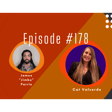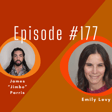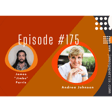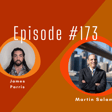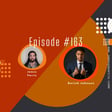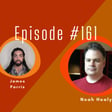
Unlocking Success Secrets: Impactful Marketing Made Easy (Jimbo Paris Show #133)
Tai Goodwin: Award-Winning Instructional Designer, Marketing Strategist, and Author. CEO of That Marketing Team. With 20+ years of online marketing expertise, Tai transitioned from teaching to entrepreneurship.
She empowers entrepreneurs, offering agency support to busy CEOs and business owners overwhelmed by marketing tasks. Author of 'Girlfriend, It's Your Time' and co-author of 'The Profitable Woman's Playbook.' Featured on The Huffington Post, Forbes.com, Money Magazine, Black Enterprise, and The BOSS Network.
“it's the relationships that we love to build with our clients.”
“When we take them on as clients that we're going to co create with and we're going to be partners with, I want to be partners in their success. I want to sew into them. And I want to sew into their vision for their business.”
– Tai Goodwin
Start your interactive marketing here and be a game-changer!
https://www.thatmarketingteam.com/
Facebook: https://www.facebook.com/tai.goodwin
Facebook Group: https://www.facebook.com/groups/thatmarketingteam
LinkedIn: https://www.linkedin.com/in/taigoodwin/
Instagram: https://www.instagram.com/taigoodwin/
Tiktok: https://www.tiktok.com/@taigoodwin
► The Jimbo Paris Show is also available in ROKU TV!◄
#TheJimboParisShow #Jimboparis #Podcast #selfimprovement #selfimprovementpodcast
CONNECT WITH ME!
►Watch Our Previous Episodes◄
Jimbo Paris Show #66- Expanding Human Potential (Judy Ryan)
GE’s Scientist Profile Series with Lana Maria Osusky –
Bringing Thermal Management Technology to Light
GE’s Scientist Profile Series with Andrew Hoffman –
Building a Product that Benefits Humanity
GE’s Scientist Profile Series with Nathaniel McKeever –
Everything Starts with Substance.
HOW TO START A PODCAST?
HOW TO START A PODCAST - Episode #01
WHAT IS SOCIAL MEDIA?
